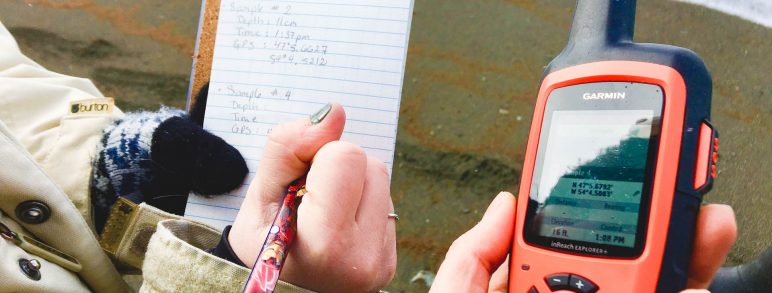The Placentia Bay Ocean Debris Survey (PODS) is a long-term monitoring project that will attempt to establish a baseline of marine debris quantities, sources and distributions in Placentia Bay, Newfoundland. Placentia Bay is already home to high levels of industrial activity and will soon see the development of the Placentia Bay Atlantic salmon aquaculture project by Grieg NL, a project that is expected to double the current annual production of salmonids for the province. The strategic selection of key survey sites around Placentia Bay for repeated marine debris surveys can reveal important information about the composition and distribution of debris in the region, as well as how this information may change over time.
The Placentia Bay Ocean Debris Survey employs multi-medium survey techniques to repeatedly monitor marine debris on shorelines, in surface waters and on the seafloor. The comprehensive survey design employed here brings together several internationally standardized protocols and aims to provide adaptations to these protocols wherever they do not suit the coastal Newfoundland environment (or rocky shores in general). In this way, it can be used as a model to inform protocols for marine debris monitoring in subarctic regions that do not suit the standardized methodologies utilized at lower latitudes.
The Placentia Bay Ocean Debris Survey is a collaborative project that depends upon the involvement of local communities and residents in Placentia Bay. Wherever possible, data is collected using citizen science technologies and/or the direct involvement of interested community members. This allows the project to incorporate local knowledge about debris sources and sinks, while ensuring that the direction of the project is always in line with community interests and needs.
See our latest poster.
Latest PODS Blogs:
Microplastics, Mega Damages: PODS work presented in Paris and Monaco
Latest PODS News:
New! Tracking trash: Citizen science app expanded to include N.L.-specific debris
Jessica Melvin and PODS featured in CBC article on marine debris
